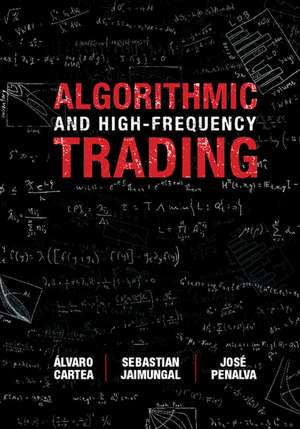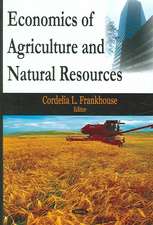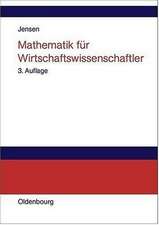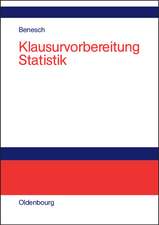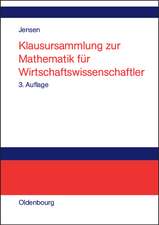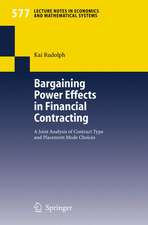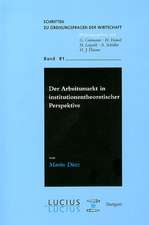Algorithmic and High-Frequency Trading
Autor Álvaro Cartea, Sebastian Jaimungal, José Penalvaen Limba Engleză Hardback – 5 aug 2015
Preț: 415.32 lei
Preț vechi: 451.43 lei
-8% Nou
Puncte Express: 623
Preț estimativ în valută:
79.47€ • 83.14$ • 66.02£
79.47€ • 83.14$ • 66.02£
Carte disponibilă
Livrare economică 12-26 martie
Livrare express 26 februarie-04 martie pentru 45.43 lei
Preluare comenzi: 021 569.72.76
Specificații
ISBN-13: 9781107091146
ISBN-10: 1107091144
Pagini: 356
Ilustrații: 5 b/w illus. 75 colour illus. 35 tables
Dimensiuni: 182 x 255 x 20 mm
Greutate: 0.87 kg
Editura: Cambridge University Press
Colecția Cambridge University Press
Locul publicării:New York, United States
ISBN-10: 1107091144
Pagini: 356
Ilustrații: 5 b/w illus. 75 colour illus. 35 tables
Dimensiuni: 182 x 255 x 20 mm
Greutate: 0.87 kg
Editura: Cambridge University Press
Colecția Cambridge University Press
Locul publicării:New York, United States
Cuprins
Preface; How to read this book; Part I. Microstructure and Empirical Facts: 1. Electronic markets and the limit order book; 2. A primer on the microstructure of financial markets; 3. Empirical and statistical evidence – prices and returns; 4. Empirical and statistical evidence – activity and market quality; Part II. Mathematical Tools: 5. Stochastic optimal control and stopping; Part III. Algorithmic and High-Frequency Trading: 6. Optimal execution with continuous trading I; 7. Optimal execution with continuous trading II; 8. Optimal execution with limit and market orders; 9. Targeting volume; 10. Market making; 11. Pairs trading and statistical arbitrage strategies; 12. Order imbalance; Appendix A. Stochastic calculus for finance; Bibliography; Glossary; Subject index.
Recenzii
'[This book] is an important and timely textbook on algorithmic trading. Human traders in financial markets are an endangered species, gradually replaced by computers and algorithms. In this new world, designing and coding trading strategies requires knowledge of market microstructure, basic economic principles governing price formation in financial markets, and stylized facts about price dynamics and trading activity. It also requires specific mathematical tools, such as stochastic control, and understanding of how these tools are used to solve trading problems. Algorithmic and High-Frequency Trading is unique in that it provides a unified treatment of these topics. I enjoyed reading it and recommend it highly to students or practitioners interested in mathematical models used in algorithmic trading.' Thierry Foucault, HEC Paris
'This book is the first to give a thorough coverage of optimal strategies in algorithmic and high-frequency trading, from the very modern point of view of dynamic stochastic optimization and based on cutting-edge work, much of which is by these authors. Other books cover the mechanics and statistics of high-frequency market dynamics, but none covers the mathematical aspects to this depth. It would be a great textbook for a graduate course in optimal trading.' Robert Almgren, Quantitative Brokers
'This textbook is a welcome addition to the literature on algorithmic trading and the high-frequency markets. It fills a significant gap by bringing cutting-edge mathematical models to bear on the analysis and implementation of practical algorithms. Using a unique blend of microstructure theory, financial data analysis, and mathematical models, the authors walk the reader through the maze of the high-frequency markets, detailing how the exchanges work, and what kind of data they generate. Trading algorithms and their practical implementations are described in easy-to-understand prose, and illustrated with enlightening simulations. This text is ideal for graduate students and researchers in financial mathematics and engineering, as well as for practitioners already working in the field.' René Carmona, Princeton University
'This book is the first to give a thorough coverage of optimal strategies in algorithmic and high-frequency trading, from the very modern point of view of dynamic stochastic optimization and based on cutting-edge work, much of which is by these authors. Other books cover the mechanics and statistics of high-frequency market dynamics, but none covers the mathematical aspects to this depth. It would be a great textbook for a graduate course in optimal trading.' Robert Almgren, Quantitative Brokers
'This textbook is a welcome addition to the literature on algorithmic trading and the high-frequency markets. It fills a significant gap by bringing cutting-edge mathematical models to bear on the analysis and implementation of practical algorithms. Using a unique blend of microstructure theory, financial data analysis, and mathematical models, the authors walk the reader through the maze of the high-frequency markets, detailing how the exchanges work, and what kind of data they generate. Trading algorithms and their practical implementations are described in easy-to-understand prose, and illustrated with enlightening simulations. This text is ideal for graduate students and researchers in financial mathematics and engineering, as well as for practitioners already working in the field.' René Carmona, Princeton University
Notă biografică
Descriere
A straightforward guide to the mathematics of algorithmic trading that reflects cutting-edge research.
